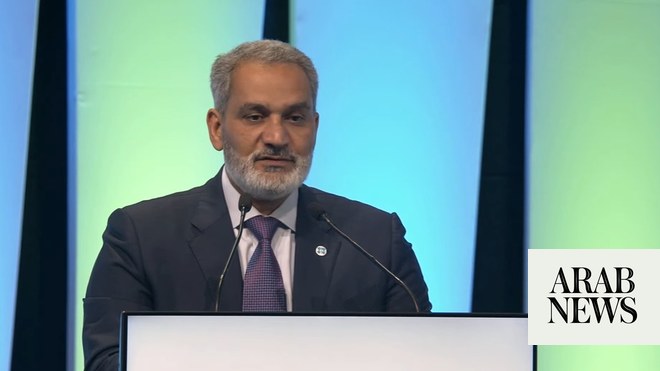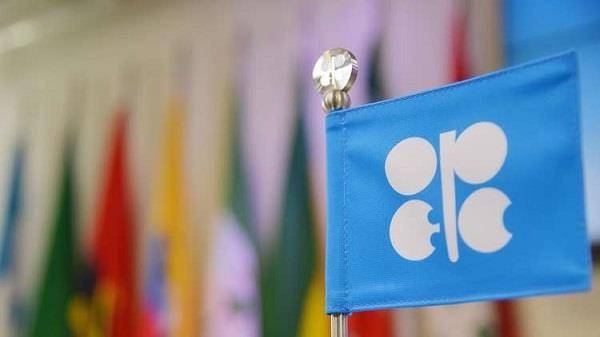
RIYADH: The Organization of the Petroleum Exporting Countries always works to ensure market stability as billions of people are dependent on oil for their daily lives, said Haitham Al-Ghais, the secretary-general of OPEC.
Speaking at the 8th OPEC International Seminar in Vienna on Wednesday, he said oil is very important for the planet, and sustainability should be achieved without compromising the needs of the upcoming generations.
“The concept of sustainability is essentially about balance. Sustainability relates to how we fulfill the needs of our current generations without compromising the needs of our future generations while ensuring the balance between three pillars of sustainability: economic viability, environmental protection and social equity,” said Al-Ghais.
During his speech, the secretary-general reiterated that OPEC is always extending its complete support to reduce greenhouse gas emissions.
“Oil is too central and fundamental for life. We recognize this reality and constantly strive to reduce our environmental footprint and we can all move toward a sustainable and inclusive energy transition,” he added.
However, he stressed that the ongoing energy transition in the world should be inclusive in nature where the voices of everyone should be taken into consideration.
“Sustainability and inclusivity are terms that are repeated so often. Inclusivity relates to ensuring that all voices are heard in discussions of the energy transition, including developing and developed countries, producers and consumers,” said Al-Ghais.
According to the OPEC secretary-general, renewable energy sources are not sufficient to achieve the climate goals outlined in the Paris Agreement.
“There is no one-stop solution to achieve sustainability. Multiple pathways should be embraced to reach the goals of the Paris Agreement,” said Al-Ghais.
The Paris Agreement is an international treaty on climate change that was produced in 2015 and compels signatories to work toward limiting the global temperature increase to 1.5 degrees Celsius above pre-industrial levels.
Al-Ghais added: “Our organization is very proud of its history. Just last month, we celebrated our 60th anniversary in Baghdad. While we rightly celebrate and focus with pride on our history, we also have to focus on our future; the future of our industry and the future of our planet.”
For his part, Antonio Oburu Ondo, president of the OPEC Conference in 2023 and Equatorial Guinea’s minister of mines and hydrocarbons, said that the world cannot sail forward without oil.
“The energy reality is that the world cannot do without oil. It (oil) has been central to our past, it is fundamental to our future, and it is pivotal to our present. It is a 24/7 commodity. We cannot do without it,” said Ondo.
Meanwhile, UAE Energy Minister Suhail Al-Mazrouei told reporters on the sidelines of the conference that additional oil output export cuts made by Saudi Arabia and Russia earlier this week could help balance the oil market.
Saudi Arabia, the world’s biggest crude exporter, said on Monday it would extend its voluntary output cut of 1 million barrels per day to August, while Russia and Algeria volunteered to lower their August output and export levels by 500,000 bpd and 20,000 bpd, respectively.
“This (the latest addition output cuts) is enough to assess the market and look at the market balance,” Al-Mazrouei told reporters, adding that the UAE would not be contributing to fresh cuts.











